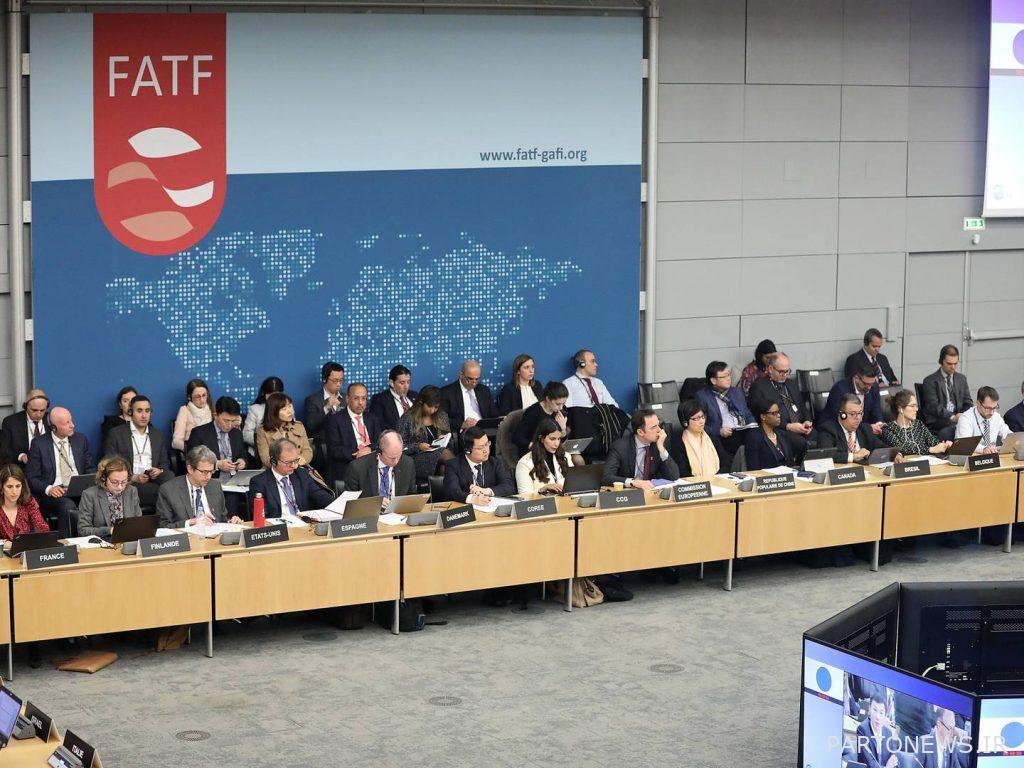Scrutiny of the new FATF guidelines; No place for decentralized?

In a few years, entrepreneurship and digital currency activity may be more difficult than it is today under the influence of regulatory procedures; Procedures advising lawmakers to deprive digital currency projects of freedom of action.
The Financial Action Task Force (FATF), the international body responsible for combating financial crime, released an updated version of its digital currency policy two weeks ago, about two years later. This guideline contains comprehensive guidelines for setting up legal frameworks related to businesses and platforms active in the field of digital currency. With the release of the new version of the FATF Code, digital currency companies are likely to be forced to make their anti-money laundering and anti-terrorist financing activities more transparent in the coming years; Some countries may even adopt stricter policies.
The content of the guidelines published by this international organization was not surprising for those who have been following the discussions on controlling financial crimes in digital currencies during this period. However, this policy addresses issues that are legally ambiguous and unknown; Issues such as DeFi, non-custodial wallets, stable coins, and compliance with the Travel Rule.
The new FATF Code does not provide a single solution to the problems in this area, however, the threats that countries must address are set out in the text of the Code. In this guideline, the FATF has tried to offer a variety of approaches so that, in addition to the rigorous oversight of the legislature, there is no disruption to the development of the digital currency industry.
Earlier, we published a report reviewing the new FATF policy, focusing on the concerns of Iranian users. But on this basis Note According to the Kevin Desk website, we intend to examine the dark spots of the new FATF guidelines and answer the question of whether this policy can continue to change the outlook for the digital currency industry around the world.
Also Read: New FATF Guidelines for Combating Digital Currency Abuse; Will the activity of Iranian users be restricted?
Almost decentralized finances!
The Financial Action Task Force has warned lawmakers not to blindly endorse the marketing of digital currency companies that claim to be decentralized. These platforms usually have a real person who controls and influences their activities, even if their business is not legal. “Control and influence” is a key term and provides a framework for examining which businesses should comply with financial crime regulations.
According to the FATF, almost all decentralized finance platforms provide digital currency services. The FATF has proposed a set of different solutions for regulating and overseeing defy platforms, one of which states that if a decentralized platform is not really controlled by any organization, the authorities could use another company operating in the field of digital currency, such as Introduce the body responsible for controlling it.
The number of new decentralized platforms is likely to decline next year, and there will be conflicting legal disputes between lawmakers and entrepreneurs in China’s blockchain industry; Conflict over who controls or influences defy protocols. It also looks like many Diffie platform organizers will continue to strive to be “decentralized” in the true sense of the word. One of these efforts can be the elimination of intra-chain and extra-chain connections that eventually connect to natural or legal persons.
The activities of defy platforms that do not comply with anti-money laundering and anti-terrorist financing regulations are considered far more risky than those of law firms operating in the field of digital currency; However, some of these registered and centralized companies do not follow these rules. Defy is not going to go away completely, but it may be more limited; Just like the boom in the digital currency (ICO) market a few years ago, which subsided after a while.
Monitor stable coins before emergence
As the FATF has said, there is only one key criterion for measuring the risks posed by stable coins, and that is the “probability of widespread market acceptance.” The FATF emphasizes that officials in various countries should monitor a StableCoin project before launching it and make sure that these projects anticipate the necessary measures to combat money laundering and financial crime in their initial planning stage.
Launching and launching a stable coin, which is literally “international”, is likely to become more difficult in the coming years. Officials in different countries are also likely to be in a hurry to monitor and legislate stable coins. Despite the FATF’s focus on combating money laundering, terrorist financing, and sanctions regulations, other financial oversight bodies appear to be encouraged to use their powers to oversee stable coins.
The US government will certainly comply with the FATF guidelines in dealing with the issue of stable coins. President Joe Biden last week called on Congress to pass legislation to improve the oversight of stable coin suppliers.
What do you do with unsafe wallets?

It may seem impossible to stop insecure wallets, but the truth is that other digital currency service providers, such as centralized exchanges, can limit their users’ interaction with these insecure digital asset storage tools if necessary. کردن.
Insecure wallets, such as Walt Trust, MetaMask, and hardware wallets, instead of keeping the private key addresses of each currency at an exchange or centralized entity, provide them directly to the user. In its policy, the FATF did not recommend a complete shutdown of these wallets, but instead pressured lawmakers to take a risk-based approach.
The policy emphasizes that unsecured wallets are not monitored like other digital currency service providers, and therefore the absence of a law-abiding entity as an intermediary poses particular risks to companies associated with these wallets. The FATF has said that legislators need to investigate the nature and extent of the risks associated with unsecured wallets in their jurisdictions and, after concluding, manage the risks in that area.
One of these risk-based approaches could be for digital currency service providers to restrict or even block transactions with insecure wallets, the FATF said. But overall, the policies that are adopted depend on the risk environment, and companies operating in the field of digital currency must also use software such as blockchain analysis tools to reduce the risks. In fact, it can be said that there is no one-size-fits-all approach to dealing with insecure wallets.
For some time now, digital currency companies have been monitoring and examining insecure wallets. These studies are likely to increase in the future; Especially as long as these companies impose risk-based restrictions, including restricting transactions and transactions between their users and addresses related to insecure wallets. The FATF mandate to investigate the risks of insecure wallets can be a boon for Chinese blockchain analysts such as CipherTrace and Notabene. It may also encourage privacy advocates on Chinese blockchain networks to double their support for privacy-based software. The legalized digital currency environment is likely to grow in the future, but the ecosystem of insecure platforms will also retain its special place with widespread development and innovation.
The story of the law of information transfer
The FATF has explicitly stated that digital currency platforms must comply with the Data Transmission Act, as it does not justify the purpose of the device in this area. Even if the digital currency industry does not agree on a single solution to comply with the law on data transfer, companies operating in this field must do everything they can to ensure that the data on the sender and recipient of the transaction is emphasized in the data transfer law. Record and transfer to another institution. There are many technologies that help digital currency companies to comply with the data transfer law, and the FATF has left the choice to the companies themselves.
Also read: What is a Travel Rule?
Probably the most pleasing part of this style sheet is the table on page 59. This table lists all the information that needs to be recorded or transmitted, depending on whether the institution is the sender or the recipient. The FATF has also emphasized the importance of data management and privacy, and has made it clear that companies operating in the field must also examine the other party before transmitting transaction information.
This could encourage digital currency platforms to try to comply with data transfer laws more quickly. At the very least, it can be said that some companies providing digital currency services will not wait for the solutions accepted by the entire digital currency industry and will create their own channels and mechanisms to comply with this law; However, this move may be an inefficient method. All in all, if there were any previous doubts about the implementation of the law on data transfer in the digital currency industry, there is not much room for discussion.
Missed points

There are two points in the new version of the FATF Code that may be important.
The first is that the policy does not mention the National Digital Currencies (CBDC), and of course there is a good reason for that. National digital currencies are likely to be regulated like Fiat currencies, and adding them to the discussion of decentralized digital currencies could complicate matters. In addition, there are few national digital currencies that have been completed, so it seems a little early for the FATF to consider national digital currencies. However, as the pilot phase of launching national digital currencies is in progress, it can be said that this area needs more FATF attention; This is because the supply of these currencies will most likely be associated with an increase in the risks associated with financial crimes.
The next item not mentioned in this policy is the risk of using digital currencies to pay for goods and services in business relationships. The FATF has said that a business that accepts digital currency does not fall into the category of digital currency service providers, but a company that processes digital currency payments through that business. As with national digital currencies, it may be a little early to link anti-money laundering guidelines, financial penalties, and sanctions regulations to commercial businesses that do not engage a person as a facilitator of digital currency transactions. But if the use of digital currencies in business relationships increases, legislators need to pay more attention to this issue; Especially if commercial businesses use insecure wallets in their transactions.

